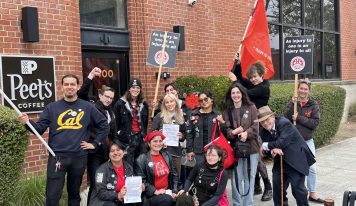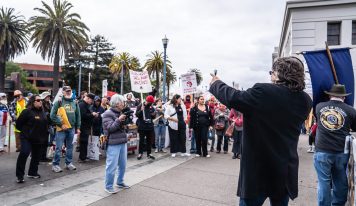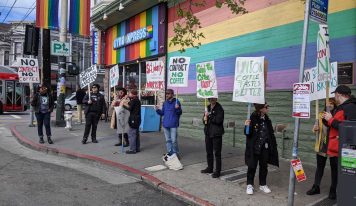On April 7th, workers at Berkeley’s Urban Ore voted to unionize with the Industrial Workers of the World (IWW), with a supermajority of workers voting ‘yes’. The vote was a culmination of a years-long organizing effort that started during the COVID-19 pandemic. Urban Ore, which holds an exclusive salvage contract with the city of Berkeley at the Transfer Station, was deemed an essential business and stayed open through much of the pandemic. However, their workers grew frustrated with the lack of safety protocols, the inherent hazards of working during the pandemic, and wages that lagged behind the high cost of living in the Bay Area. This frustration quickly turned into talks of unionizing.
Urban Ore is rooted in the “zero waste” movement, which aims to divert waste away from landfills and other environmentally damaging practices and reuse as much as possible. As part of Berkeley’s recycling program, Urban Ore workers source, move, clean, stock, and sell salvaged goods on the three acre property. Despite the physical hazards of working with salvaged goods, workers reported that there are inadequate safety rules in place at the company. Benno Giammarinaro, who works in the receiving department, recalled being told by managers that employees are responsible for speaking up when a task seems dangerous or unhealthy, and if they did something dangerous they were violating safety policy.
These safety issues came to a head during the pandemic when a worker tested positive for COVID-19. After learning of the diagnosis and potential exposure to other workers, management waited hours to inform them. When pressed by workers for a COVID-19 safety plan, the managers suggested that employees draft one themselves. Although the business was enjoying record profits during the pandemic, workers felt burnt out and expendable, and many left. This turnover created understaffing problems which fueled the union effort.
Urban Ore’s role as part of an environmentalist recycling program has led the public to view it as a progressive organization, but this characterization did not match the experience of the workers we spoke with, who cited the turnover and safety issues as evidence that they were not being respected or heard by management. Unionization was their way to address this lack of support and demand changes.
The worker-organizers got help from multiple organizations, including the International Longshore and Warehouse Union (ILWU), the Democratic Socialists of America East Bay Chapter (EBDSA), and the Emergency Workplace Organizing Committee (EWOC), but ultimately went with the IWW. Sarah Mossler, who works as a manager in the receiving department, said the IWW’s emphasis on rank and file engagement and worker autonomy made for a great culture fit. “They’re weirdos like us,” she added. “Plus, a lot of our customers had positive associations with the IWW.”
The workers announced their intention to unionize in February of this year by handing a letter to their supervisors and emailing the owners. Workers characterized the response from management as hostile, with one manager alleging that the union would be a “disaster”. Organizers were subject to “captive audience meetings”, a common union-busting tactic where managers work to misinform workers about unions.
To fight back, the workers engaged in direct action, asking customers to sign petitions against union busting. Many customers were surprised about the drive, saying that they believed Urban Ore was cooperatively owned. The owners of Urban Ore had, for a long time, professed a desire to turn the business into a co-op, but there was no formal plan in place.
Some workers were also skeptical of the co-op idea, as early versions of the plan were created without their input. AJ Abrams, who works in the sales department, expressed concern that the terms of the co-op would require workers to go into debt to “buy-in” to ownership, forcing them into a precarious financial position. He believes the union was a necessary step towards a more equitable co-op program, as it forces management to include the workers in the discussion.
The workers are looking forward to negotiating their first collective bargaining agreement (CBA), hoping to win better safety standards, more paid vacation days, and a cost of living adjustment to their wages. Despite having a revenue sharing program, the workers were frustrated that the soaring revenue Urban Ore enjoyed during the pandemic was not reflected in their paychecks. Workers reported their hourly wages maxing out at around $20 an hour, which does not meet the high cost of living in the Bay Area. The workers are also excited to be joining the “solidarity network” of labor organizations in the Bay Area, citing other IWW union drives at Alamo Drafthouse in San Francisco, the Berkeley Ecology Center, and Copperfield Books in Petaluma as signs of a resurgence in organized labor.
Photo by Urban Ore Workers





